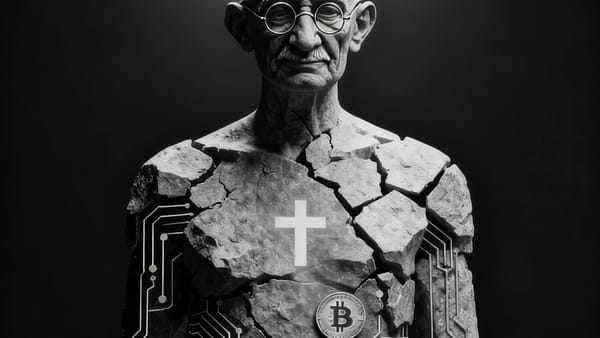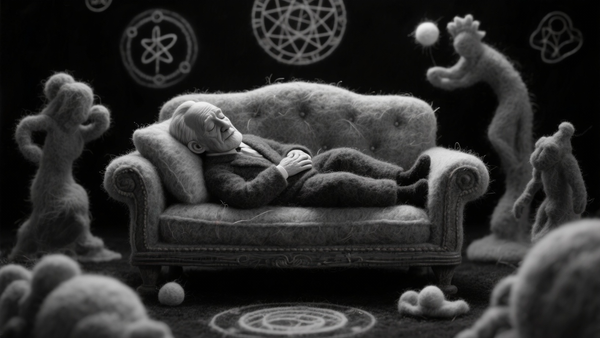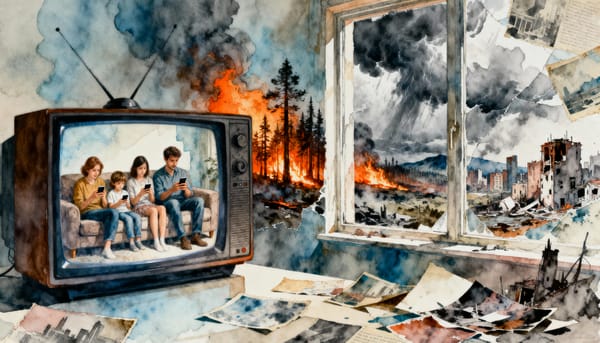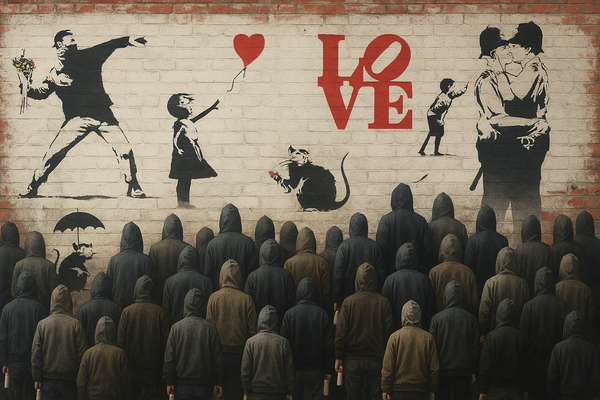Cómo el sistema transforma lo que no puede controlar: La contracultura domesticada
Una reflexión sobre cómo el sistema asimila lo que inicialmente fue subversivo, desde los fanzines hasta Tupac, Kurt y Amy.
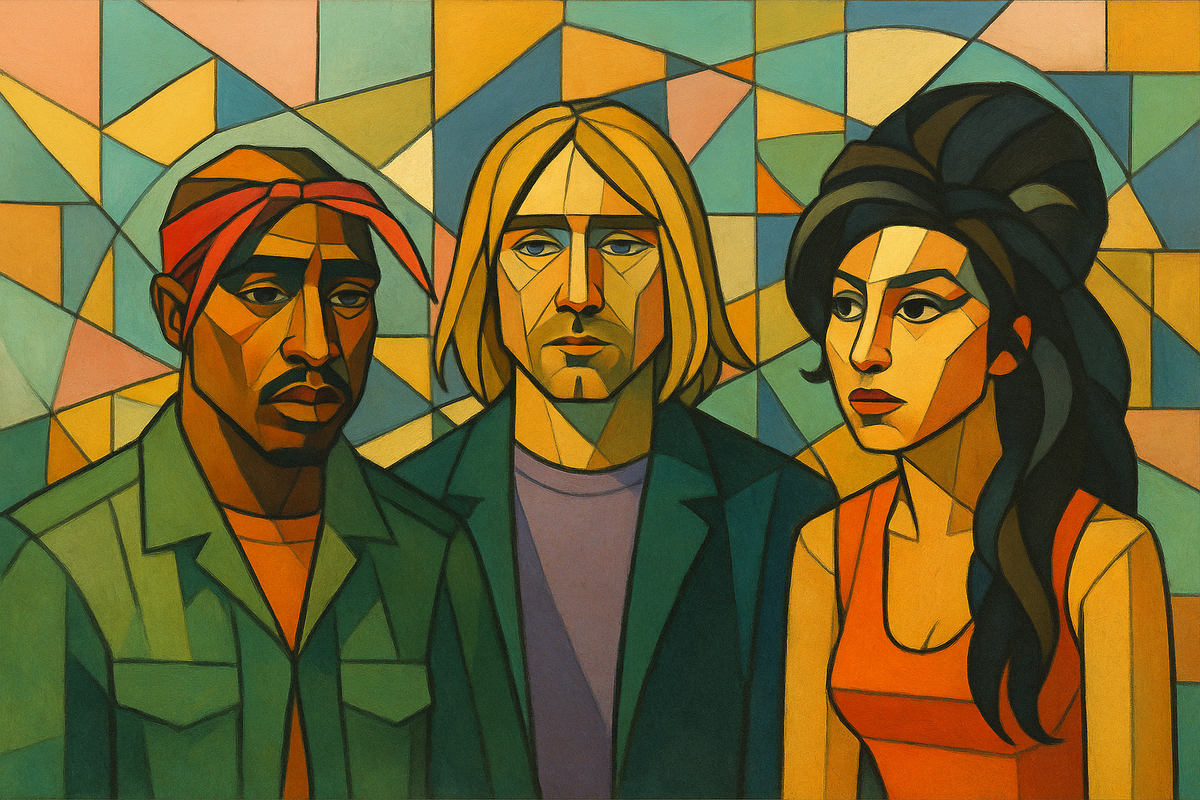

Nací en 1979, en Catalunya, España, en una familia de clase obrera. De las que ahora, entre el orgullo y el miedo, se hacen llamar clase media. Crecí entre televisores de tubo, huelgas generales y veranos sin aire acondicionado. Mis padres trabajaban mucho, hablaban poco, y cuando lo hacían, era para enseñarme a “portarme bien”, a “no molestar”, a “no ser un estorbo”.
No fui hijo único. Fui el tercero, con una diferencia de diez años con el segundo. Así que fue peor que criarse solo: fue crecer sintiéndome un añadido, una molestia, una carga. Desde pequeño aprendí a no pedir, a no interrumpir, a observar “desde la distancia”. Como si no bastara con existir, como si siempre tuviera que demostrar que merecía estar ahí.
En esa España de los 80 y 90, mientras en otros países la inmigración venía del exterior, aquí era interior: aún se arrastraban las consecuencias del gran éxodo rural iniciado en los años 50 y 60. Familias enteras se trasladaban de Andalucía, Galicia o Extremadura a Cataluña, Euskadi o Madrid en busca de trabajo y dignidad. Pero no era solo una mudanza laboral, era un choque cultural. Se hablaban otras lenguas, se vivían otras costumbres, y muchas veces, los recién llegados eran vistos con recelo. La desigualdad entre regiones era profunda, y la convivencia no siempre fue fácil. Aquellos que, como mis padres, migraron dentro del mismo país, también vivieron el desarraigo, la adaptación forzada y la sensación de ser forasteros en su propia tierra.


